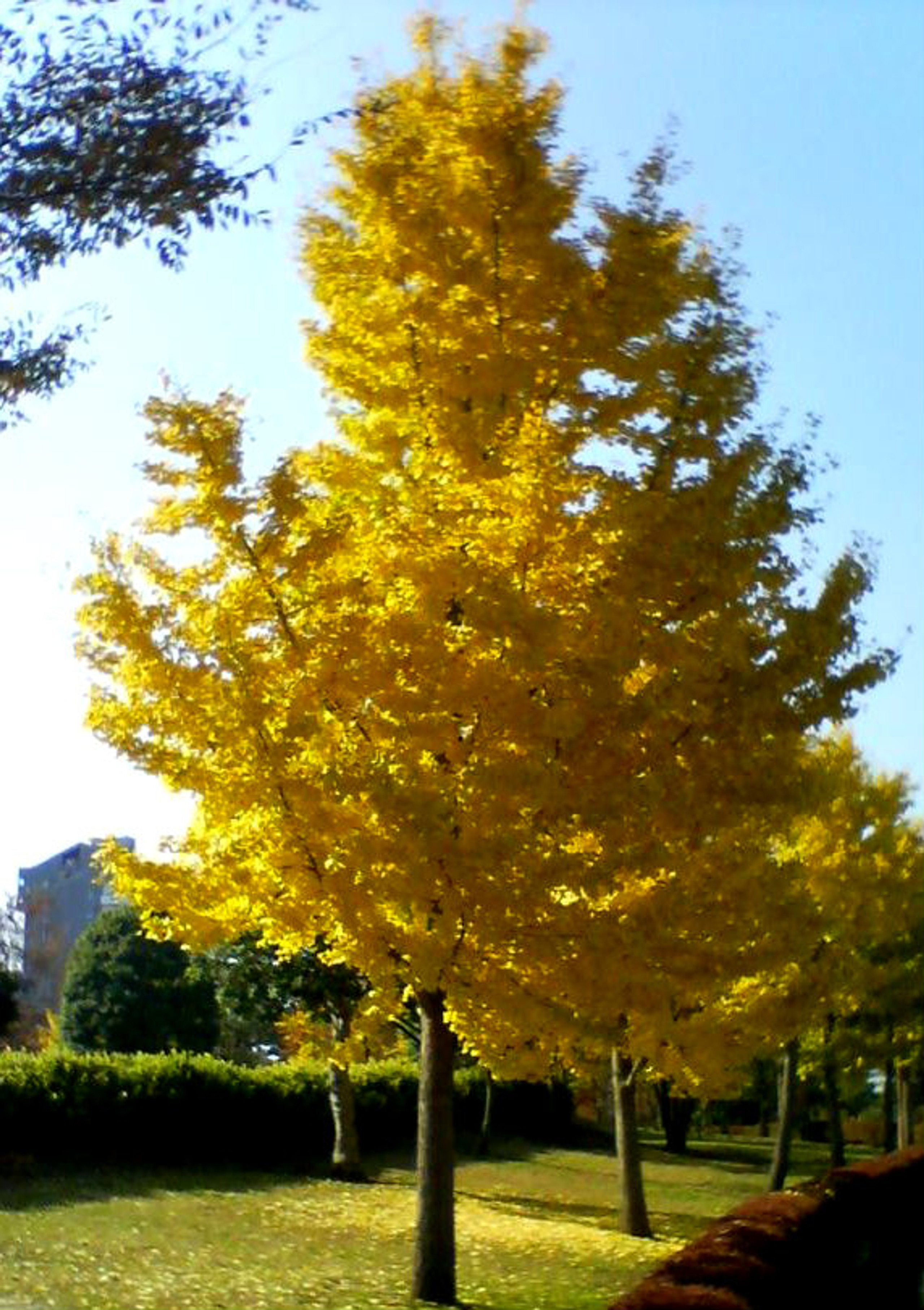
When the leaves do drop, they drop rapidly, forming a golden carpet around the tree. Photos taken at Chino Basin Water District - Chino, CA, Morton Arboretum - Lisle, IL and Hoyt Arboretum - Portland. Leaves turn a uniform golden yellow in autumn (spectacular when backlit by early morning or late afternoon sun) and persist for several weeks. 'Princeton Sentry' is an all-male cultivar typically growing at maturity to 40-50' with an upright, narrowly conical habit. Specific epithet means two-lobed in reference to the leaves. Its dense and upright form makes it a good choice for narrow plantings.

Genus name is a misrendering of the Japanese gin meaning silver and kyo meaning apricot used in Japan in the 17th century. This is a fastigiate, male Ginkgo selection. Nurseries typically sell only male trees because female trees produce seeds encased in fleshy, fruit-like cone which, at maturity in autumn, are messy and emit a noxious, foul odor upon falling to the ground and splitting open. Ginkgo trees are considered to be slow-growing shade trees. Ginkgos are dioecious (separate male and female trees). Princeton Sentry is an upright male cultivar, it will not produce fruit which is possible with a seedling grown Ginkgo. Ginkgo trees are commonly called maidenhair trees in reference to the resemblance of their fan-shaped leaves to maidenhair fern leaflets (pinnae). It features distinctive two-lobed, somewhat leathery, fan-shaped, rich green leaves with diverging (almost parallel) veins. It is the only surviving member of a group of ancient plants believed to have inhabited the earth up to 150 million years ago.

Ginkgo biloba is a large, deciduous tree that matures to 100' tall and is considered to be a living fossil.


 0 kommentar(er)
0 kommentar(er)
